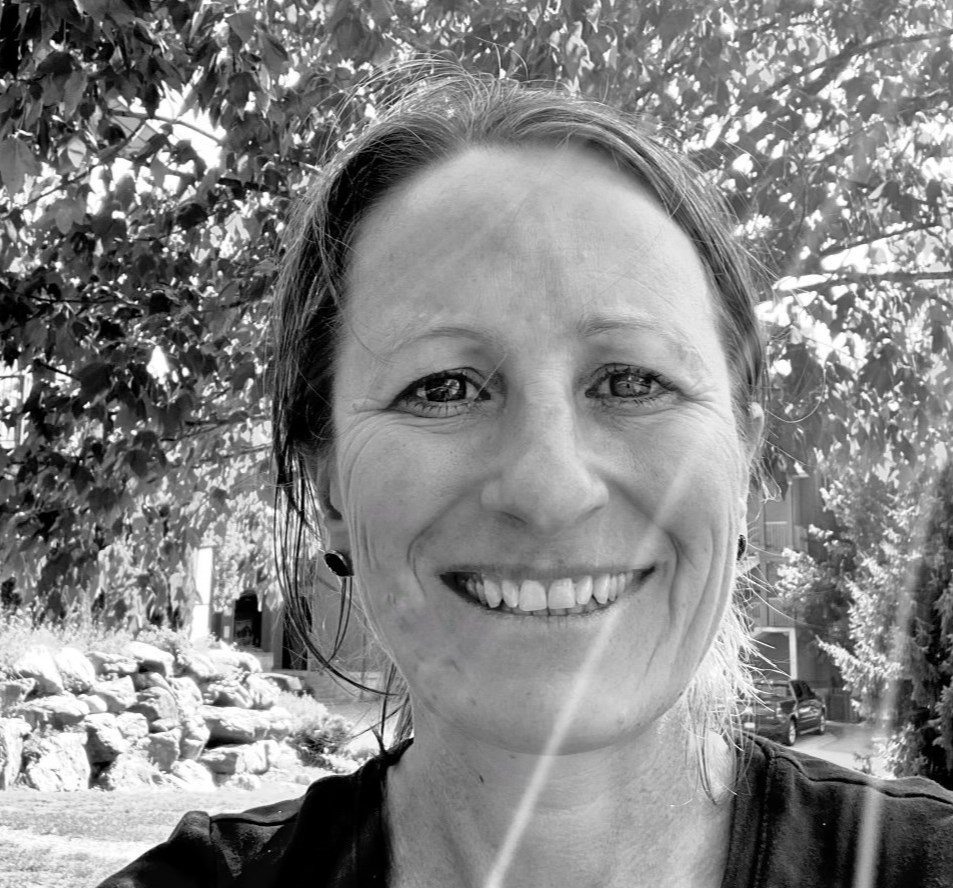As a former two-term councillor, Jennie Helmer knows first-hand just where the Village of Pemberton’s (VOP) purview begins and ends. But as Pemberton continues to grow at lightning speed, Helmer is of the mind that its elected leaders need to take a broader view of the pressures bearing down on the rural community.
“We as a community have direct influence over some pieces and indirect influence over others. What I’ve noticed is we’ve spent a lot of time on the direct influences, and that makes sense, because that’s of course where our sphere of influence is,” said the 48-year-old director of clinical operations for BC Emergency Health Services. “But because the pressures now are so big and vast, I think we have to position ourselves with conversations around the pieces that we don’t directly influence, too.”
Pemberton’s population grew by almost a third between 2016 and 2021, with more than a quarter of the town’s residents falling between the ages of 30 and 39. That, of course, puts added strain on the community’s health-care, education and recreation landscapes, driving home how important it is for the VOP to voice those challenges to senior levels of government.
“We just have to make sure we’re aware of the interconnectedness and then ensuring that, embedded within our strategy, is also the conversation with the higher levels of government so they understand the impacts to us and what we can do to mitigate those impacts and, in fact, to make them better,” Helmer said. “I think we have to be really clear and obvious about the impacts of the growth and knowing that the growth is coming to the province everywhere. It’s not just Pemberton. So I think the timing is really good to have that conversation, because we’re not experiencing any new pressures, but I think where we can really lead the conversation is around what we do about them and how we make sure our community members and people who want to come here are well served.”
If elected, Helmer also wants to continue the work of prior councils on building lasting and meaningful relationships with the Lil’wat Nation and Mount Currie community. Key to that, she said, is not simply paying lip service to reconciliation, but directly involving Lil’wat in the decision-making process.
“That, I think, is really the spirit of reconciliation,” said Helmer, whose last term on council ended in 2018. “It’s not just nodding towards it, but true integration, and making sure the decisions we make don’t negatively impact another community, like the Lil’wat Nation. Building up those relationships is part of that, and I certainly advocate for that and I think the blueprint is already there.”
With the experience of her family’s multi-generational organic farm in mind, Helmer also discussed the importance of preserving the small-but-productive farmland Pemberton still has left.
“That leads into that food security piece, and making sure that we have land available to grow food on I think is the fundamental tenet there. That’s why the [Agricultural Land Reserve] is in place, and the value there is in ensuring whoever moves here, and to the province itself, can rely on it,” she noted. “We have infrastructure here and knowledge here that other places don’t have, so protecting that is important. It intertwines again with the conversation around what we have direct influence over at the Village versus what we’re having conversations on and advocating for.
“There is far more land within the [Squamish-Lillooet Regional District] that is agriculturally zoned, but the Village does have some and then, of course, we meet regularly as the Village with the SLRD and the Lil’wat Nation. So having those conversations and having a shared responsibility around understanding why it’s so important [is necessary].”




